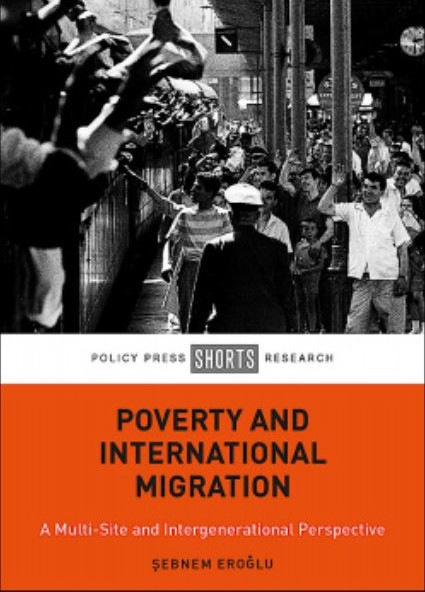The first-of-its-kind study, by Dr Sebnem Eroglu from the School for Policy Studies, found that migrants who settled in another country were significantly poorer than their counterparts who stayed in their country of origin.
The research looked at 2,000 families across three generations who migrated to multiple European destinations. It found four-fifths (79%) of first-generation settlers were poor, compared with a third (33%) of stayers. By the third generation, around half (49%) of settlers were still poor, compared to just over a quarter (27%) of those who remained in their homeland.
Findings also showed that while more than a third of stayers (37%) from the third generation went on to achieve a higher education qualification, this applied to less than a quarter (23%) of settler migrants.
The research draws on the largest-ever database generated on the history of the guest-worker movement to Europe in the 1960s, tracing 2,000 families who stayed in Turkey or migrated from Turkey to more than seven European destinations, including Germany, the Netherlands, France, Austria, Belgium, Denmark, Sweden and others.
Diminished returns on educational attainment as well as limited access to welfare benefits, such as state pensions, and citizenship rights were cited as common issues among those who left in the hope of a better standard of living.
Dr Eroglu, who has published the findings in new book Poverty and International Migration, said:
“It has been fascinating to explore the extent and sources of poverty experienced by international migrants from a multi-site and intergenerational viewpoint, especially given that no comparisons have previously been drawn between migrants spanning multiple destinations and family generations and their returnee and stayer counterparts.
“Under the guest worker movement, labourers (typically men) from Turkey, and other Balkan and Southern European countries, were invited to contribute to the building of Northern and Western Europe. Despite the contributions the first goers made to the countries they settled in, at their pensionable age, they found themselves to be significantly worse off than those who remained in Turkey. Their children and grandchildren have also not fared as well as their stayer and returnee counterparts.
"It raises a number of questions about the role of European labour markets and welfare states and I hope this research can help address some of these issues.”
